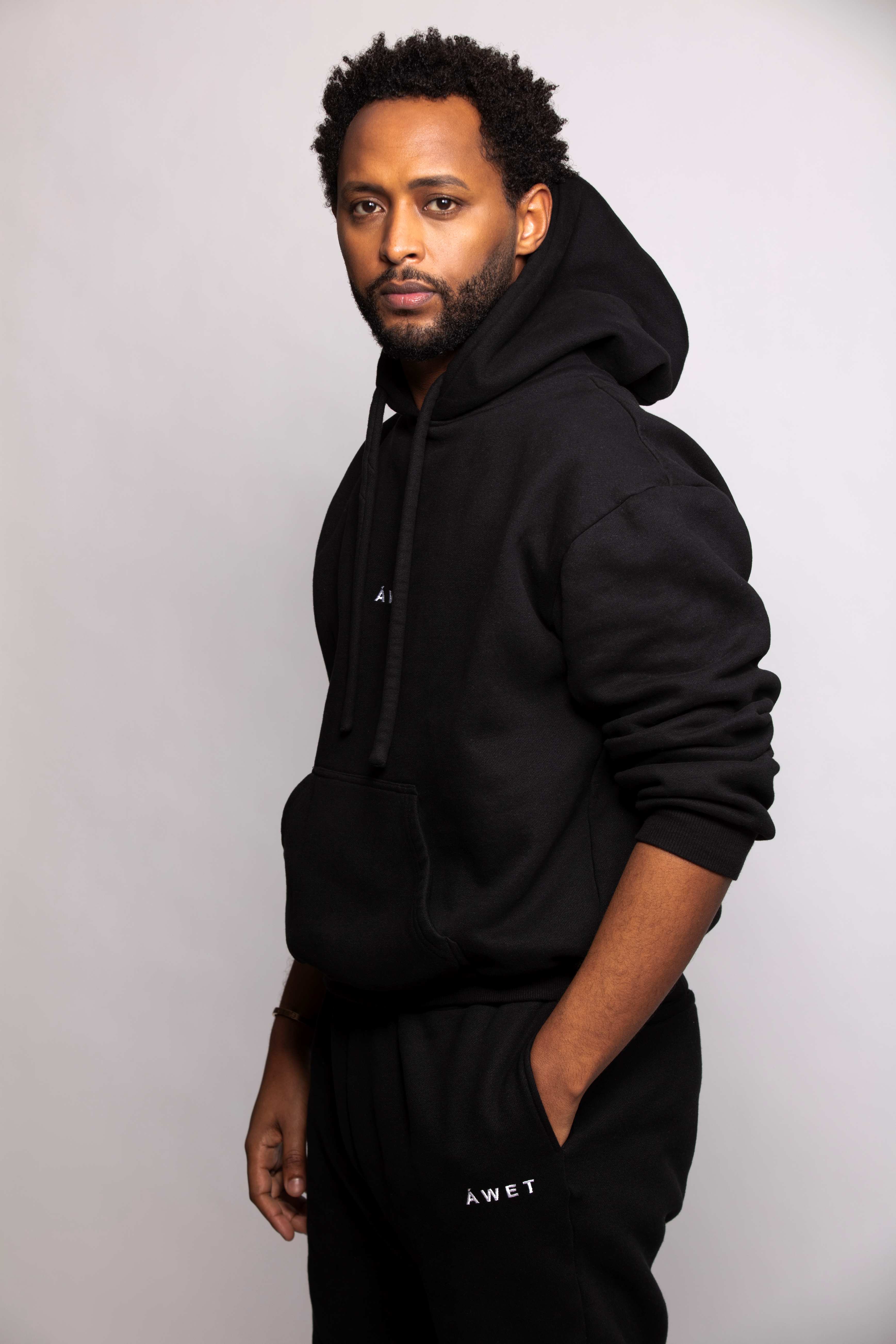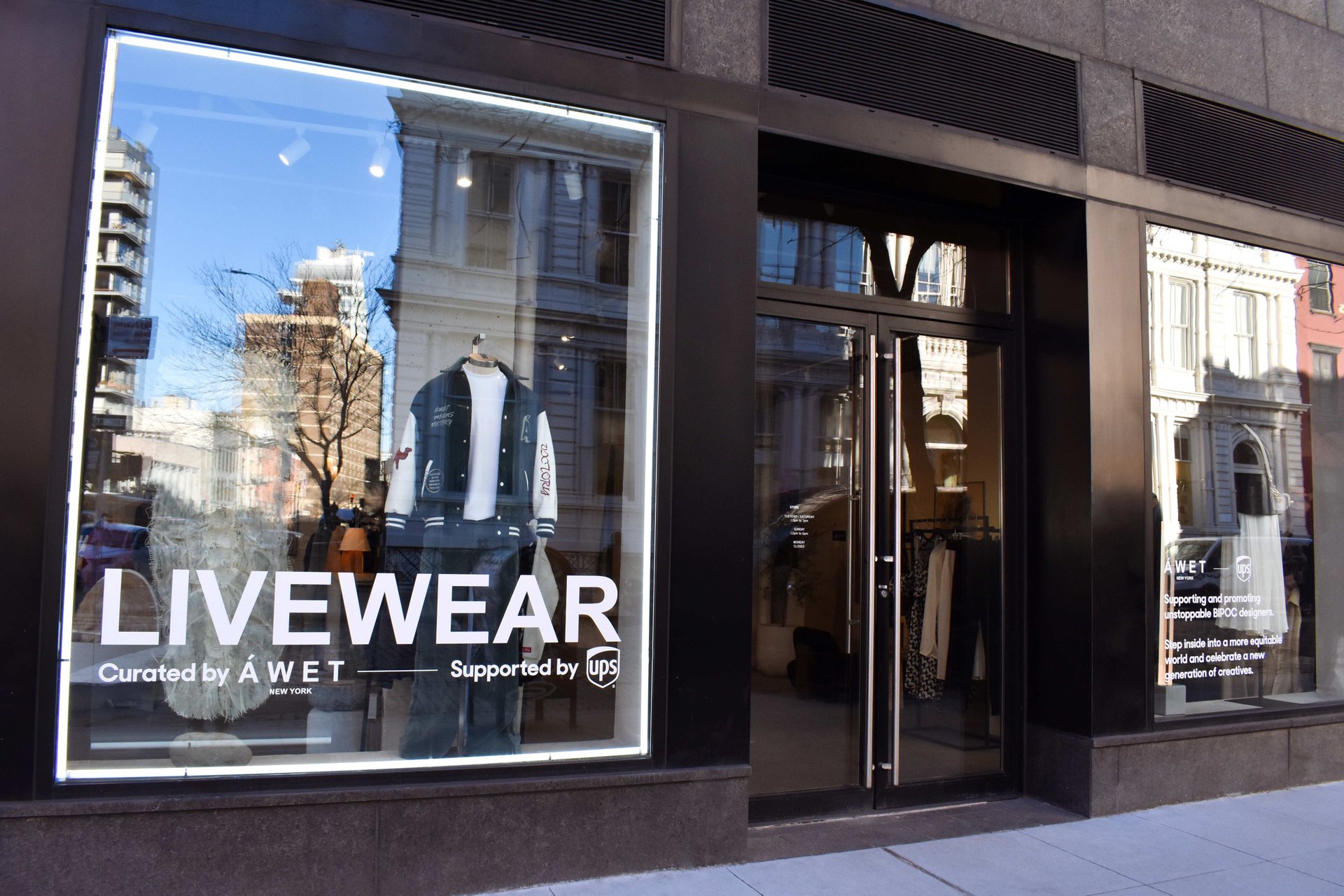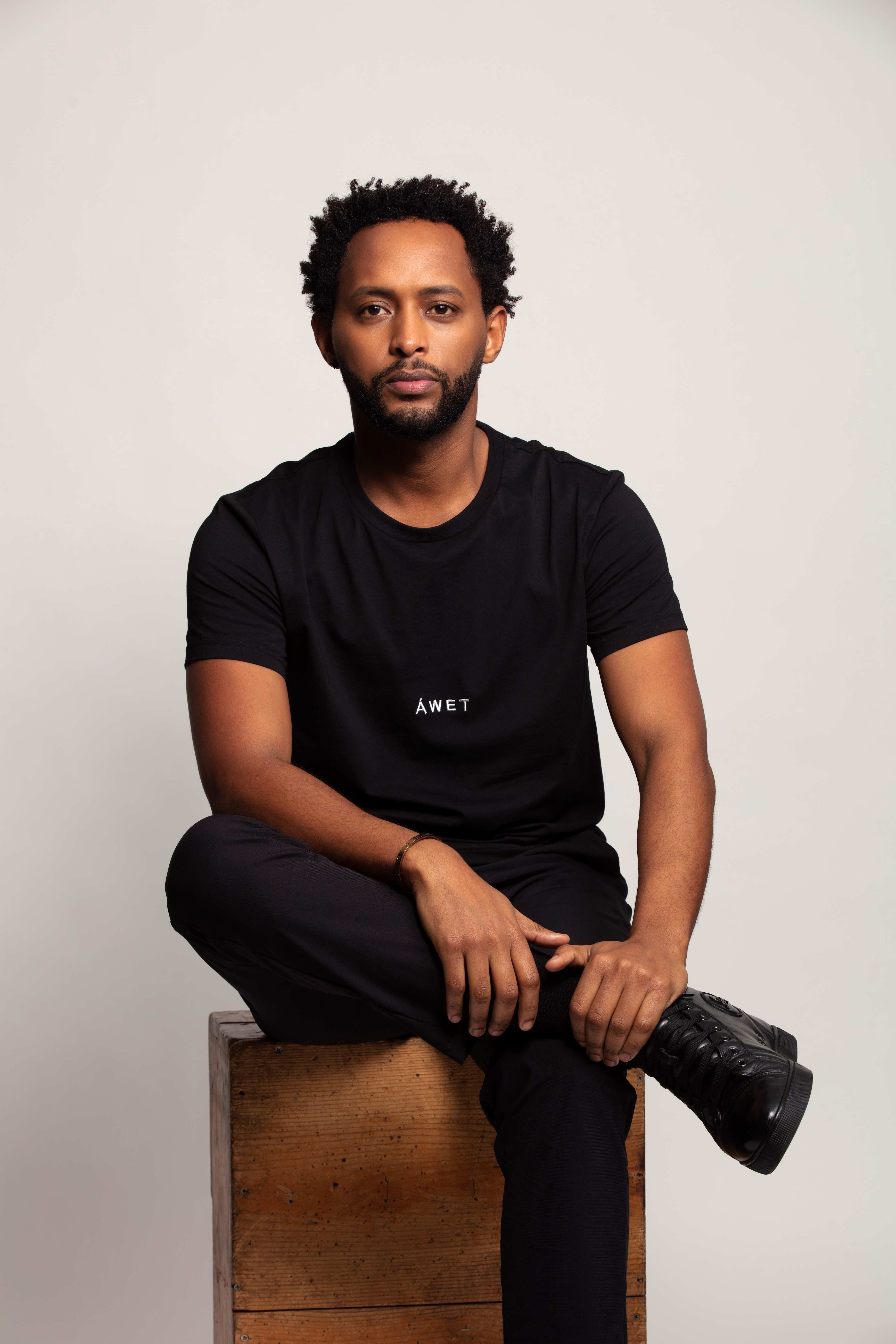Áwet Woldegebriel started his business in 2020, just as the pandemic threw the world into a period of uncertainty. Woldegebriel knew community was more important than ever, so he jumped into action with Áwet New York’s debut collection, “A Promise to New York.’ Inspired by his father, who was a tailor, Woldegebriel set out to support garment workers. He used all of his savings to start the brand, and the bet paid off when he was met with swift success. With 100 percent of the profits going back to the workers, the brand earned the support of the fashion industry and consumers alike.
From there, the brand caught the eye of CFDA Member Kenneth Cole (now a mentor and friend); designed a collection with Equinox; was selected for the Saks designer accelerator program; and, now, has a new collaboration with UPS to support BIPOC talent.
Woldegebriel grew between Eritrea and Ethiopia before fleeing in 1998 and moving to the U.S. in 2000 after he was granted asylum. The designer is committed to spreading positivity and using his platform to give back to those around him.
Learn more about the emerging designer and his label below.
How did you get your start in fashion? Was this an industry you always wanted to work in?
Growing up, as a son of a tailor, I was surrounded by seamstresses, garment workers, tailors, and fabric dealers in Addis Ababa. I understood the power that clothing can have in setting intentions and culturally representing one’s heritage, background, religion, education, etc. Being a Habeshan (a person of Eritrean and Ethiopian descent), garment storytelling was an integral part of showcasing identity, so there was always respect for garment workers in the community when I was growing up.
I used to work in the UN system, leading partnerships and promoting UNIFE’s global cause. I never thought that I would end up working in the fashion industry. What’s surprising is that I completed my Masters at NYU Robert F. Wagner Graduate School of Public Service. My thesis was focused on analyzing the production and manufacturing cycle and its impact on workers and the community. Looking back, it feels like the universe was preparing me for this journey, and the community impact that this industry can make led me to work in this field.
Congratulations on LIVEWEAR, your first retail location. It seems like a very unique venture; how did the idea for this store come about?
When I started working in the fashion industry, I noticed that there weren’t many designers like me at the top. This inspired me to take action. In 2021, I had the opportunity to collaborate with Kenneth Cole. Together, we sought to address the issue that only 7.5 percent of fashion designers in America are Black. Our collaboration led to taking over his vacant Bond Street store and opening a holiday pop-up store for a week, featuring 10 Black designers. Two years later, we took over the same space and opened the first-of-its-kind retailer destination where consumers can discover BIPOC brands in a destination that celebrates fashion, art, and design.
We brought on world-renowned Mexican designer and architect Jose Esperon from Esperon Studios to be the space’s creative director and lead the charge of designing the store. The new multi-brand shopping destination features a roster of ever-evolving BIPOC designers to discover, offering customers the opportunity to learn about new and diverse luxury brands across fashion and accessories and showcase never-before-seen luxury designer furniture and art.
It’s more than just a store; it’s an immersive galley that guarantees each visit as an encounter with innovation and inspiration, reshaping the conventional retail encounter.







